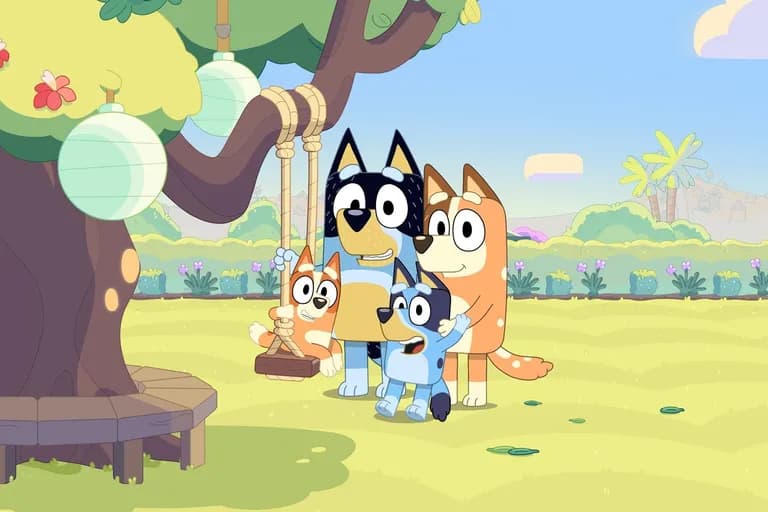asked The Atlantic, echoing fans’ fears that the show was ending. “The Sign,” the extra-long Season 3 finale, is about the Heeler family’s decision to sell their Brisbane home. Bluey is a children’s show about the daily life of a family of four, living in Australia: dad Bandit and mom Chilli Heeler, and their 6- and 4-year-old daughters, Bluey and Bingo. “Is This the End For ‘Bluey’?”The Heelers are dogs (blue heelers, or Australian cattle dogs), and everyone else in their universe is also canine, but besides that fact, the show is realistic—quotidian, even, in its depiction of scooter rides and family dinners. The latter concerns a backyard wedding between the Heelers’ Uncle Rad and their family friend Frisky, taking place in the house that’s at the center of the former: the Heelers have announced that they are going to sell their home and leave their city and move to another, so that Bandit, the dad, can take a new job that makes moreI found it interesting that J. And I, a parent Bluey fan, recognize I probably do have to relax about this series, and about most things. ” This was a much longer episode than the rest—28 minutes compared to the usual less-than-10—and has, unlike most Bluey installments, real A and B plots. I choose to see the show’s extreme popularity among today’s youth as a sign that AI will never win. The ghost gambit doesn’t work, and Chilli, in character, buys the house and “moves in. ” At the end of the episode, we get a view of the front of the house, and it has a real, live “For Sale” sign on” In a classic Bluey turn, Bandit, playing the real estate agent, is overcome with sympathy for the “elderly” Bingo and Bluey, and decides to flip “sides. ” In the backyard, Bandit plays “ghost wheelbarrow,” and Chilli, pretending to be spooked, gives up and vacates the premises. The real estate agent loses his sale, and Bluey and Bingo’s “grannies” win, holding onto the house for another day. This is the part, J. —with Easter eggs like “when Chilli opens the boot of the car the umbrella seen in the episode ‘Rain’ is in there. ” Bandit decides at the end of the episode to remove the “For Sale” sign from the lawn—a silent indication that he’s going to give up on the new job, the different city, and the new chapter. ” In the end, what happens in the game in “Ghostbasket,” happens in real life in “The Sign. that “Ghostbasket,” with its deep sense of foreshadowing and lack of wedding-type distraction from the emotions at hand, is the more poignant of the two—or maybe I just like the typical Bluey episode, a brief, concentrated capsule of family life, more than the more elaborate ins and outs of “The Sign. It makes perfect sense that “The Sign” hit home, even if it’s not really the end.
